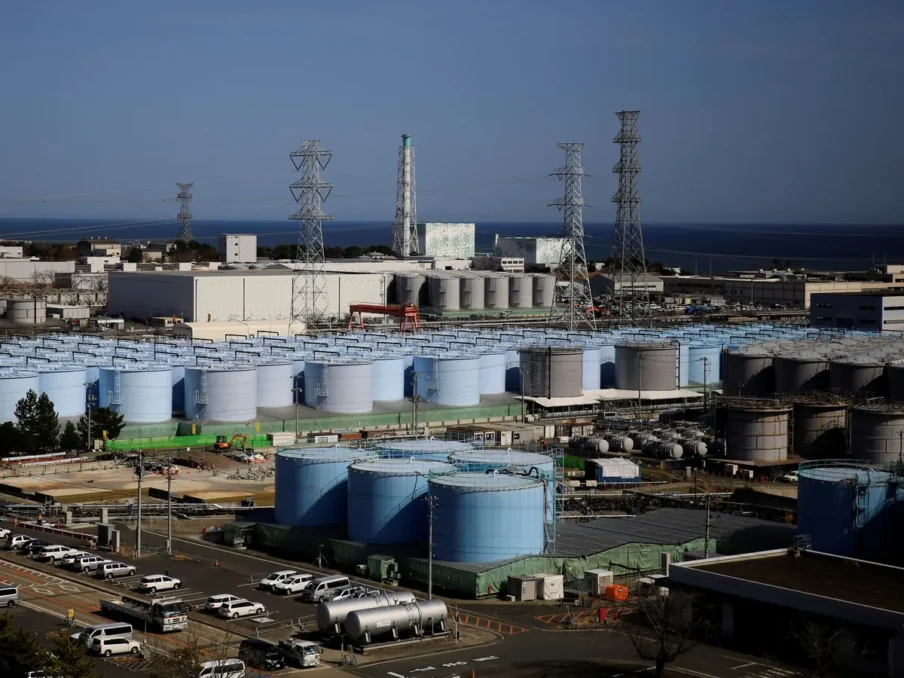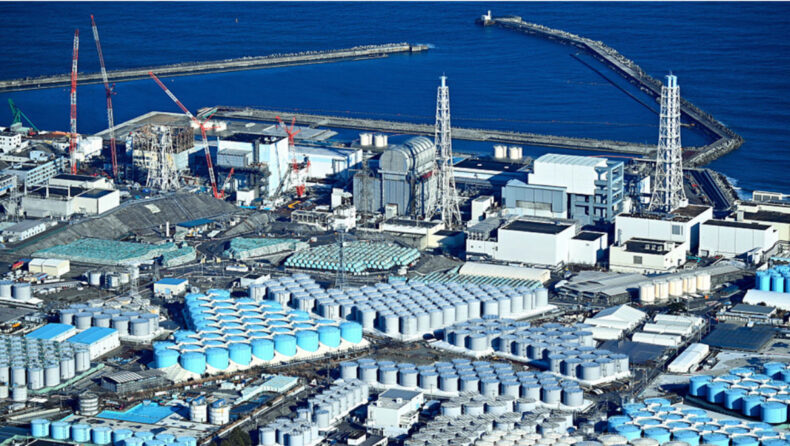Recently, Japan announced that from August 24 it would begin discharging more than 1 million metric tonnes of mitigated radioactive water from the ravaged Fukushima nuclear power plant. China has severely condemned Japan for this move.
The statement comes a day following the government’s claim to have gained “a degree of compassion” from the fishing sector concerning the release of the water, notwithstanding a fishing group which expressing that the adverse publicity would eventually result in livelihood and employment losses.
Two years ago the Japanese government approved a plan as being essential to decommissioning the plant run by Tokyo Electric Power Company (Tepco) has also come under fire from surrounding fishing organizations, who are anxious about image damage and an imminent danger to their business.

Table of Contents
Japan’s Stand
Prime Minister Fumio Kishida stated on Tuesday morning, “I have directed Tepco to efficiently plan for the water discharge in conformity with the protocol authorised by the Nuclear Regulation Authority, and estimate the discharge of water to start on August 24.”
Tepco revealed during an announcement on Tuesday that the initial supply of water will be distributed starting on Thursday, and will be 7,800 cubic metres in volume over around 17 days.
As reported by Tepco, the tritium concentration in the water will be around 190 becquerels per litre, which is less than the 10,000 becquerels per litre that is recommended drinking limit by the World Health Organisation.
According to Japan, the water discharge is safely secured. The project was approved in July by the International Atomic Energy Agency (IAEA) which claimed that it corresponded to global norms and would have “negligible” repercussions for people and the environment as a whole.
International Backlash
According to a study done over the weekend by the Japanese network FNN, 56% of participants backed the discharge whilst 37% objected.
“It’s safe, according to the IAEA and many other nations, therefore I think it is. Yet, as there are a variety of problems affecting fishermen, the Japanese government must take measures to persuade them, according to Hiroko Hashimoto, a 77-year-old NGO member.
Regardless of safeguards, multiple neighbouring countries have expressed concerns regarding its safety and security, with Beijing emerging as the most vocal opponent. In July, the Chinese foreign ministry’s spokesman Wang Wenbin asserted that Japan had acted unilaterally and arrogantly by dumping the water without fully consulting with the global community.
According to Wang, China is going to take every step required in order to safeguard the aquatic ecosystem, security of food, and public well-being. Although he made no explicit mention of specific steps.
John Lee, the chief executive of Hong Kong, condemned the decision as ignorant and declared that the city will instantly enforce import restrictions on Japanese fish and seafood from the Fukushima area, including the capital Tokyo, beginning on Thursday.
The restriction, which will also come into effect in Macau and will be imposed to live, frozen, chilled, and dehydrated seafood as well as on sea salt and seaweed.
In an announcement made public on Tuesday, South Korea stated that while it was unlikely to concur with or endorse the proposal, it had no issues with the scientific or technological parts of it. President Yoon Suk Yeol must maintain an appropriate equilibrium in this scenario as he attempts to improve ties with Japan while simultaneously dealing with the danger of consumer sentiment domestically.
Conclusion
Amid the tension internationally, Kishida asserted that he hoped there was an emerging comprehension of the situation among world leaders.
Japan claims that it is going to filter out the majority of radioactive substances from the water, with the exception of tritium, a filter-difficult hydrogen isotope that needs to be treated.
The preliminary findings of the saltwater following the release, according to a Japanese official, could be made public at the beginning of September. Japan will additionally investigate fishes in the waterways close to the plant, and the outcomes will be posted on the official website of the agriculture ministry.













